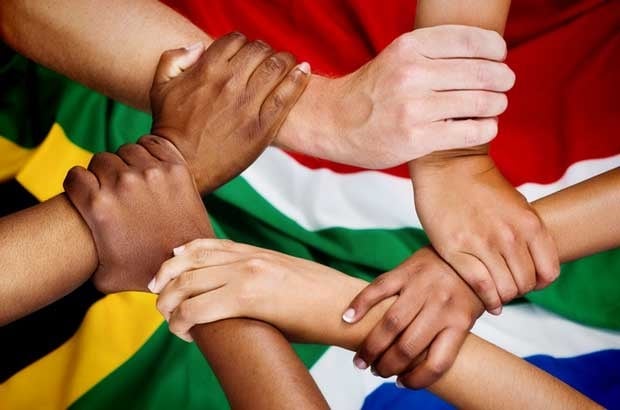
While most South Africans agree that the road to reconciliation must be pursued as a national objective, there are many obstacles that need to be addressed first, writes Tyla Dallas.
Since 1995, the Day of Reconciliation has been commemorated annually on 16 December. The day acknowledges the continued importance of reconciliation and national unity for South Africa to realise its vision of a non-racial and non-sexist society based on human dignity, equality, and freedom for all - as enshrined in the Constitution.
The South African Reconciliation Barometer 2021 - released annually by the Institute for Justice and Reconciliation (IJR) - states that "Reconciliation emerged as a popular concept during the democratic transition in the 1990s as a means to both minimise the prospect of conflict and enmity between previously segregated groups and to foster an inclusive form of democratic citizenship."
Reconciliation still needed
But what does reconciliation mean? According to the Barometer's findings, 39% of respondents associated reconciliation with "forgiveness", 31% with "peace", and 25% with "making amends" and "moving on." Irrespective of the meaning attached to the term, an overwhelming 72% of respondents agreed that "South Africans still need reconciliation."
While most South Africans agree that the road to reconciliation must be pursued as a national objective, there are many obstacles that need to be addressed first. In its annual Human Rights Report Card 2021, the FW de Klerk Foundation highlights "the unsustainable conditions of poverty, inequality, unemployment, violent crime and declining social, educational and health services that constitute the lived daily experience of a majority of South Africans" as a principal threat to human rights.
However, rather than focus attention and resources on alleviating these urgent issues, political office bearers from the highest level choose to stoke the flames of racial disharmony to gain popularity and promote their own political agenda. Inflammatory rhetoric such as that recently echoed by Western Cape Judge President John Hlophe and the myriad racist tirades of EFF Leader Julius Malema aims merely to divide ordinary citizens who generally have good relations with one another and sabotage any chance at reconciliation and national unity.
In fact, politicians and public office bearers would be well advised to focus on issues with which ordinary South Africans are most concerned. Numerous public opinion surveys conducted by the Institute of Race Relations (IRR) show that most South Africans are far more concerned about unemployment (cited by 53.4% of respondents), crime (22%), corruption (18.2%), inadequate housing (16.6%), and poor service delivery (10.9%). By comparison, only 3.3% of respondents view racism as a serious unresolved problem.
Reject race-baiting
Racism and discrimination have no place in our society and should be vehemently rejected. Unfortunately, a pattern has emerged whereby allegations of racism and discrimination are used to divert attention from the real challenges with which South Africans are struggling.
As the IJR Barometer suggests, "the responsibility for reconciliation should lie will all South Africans" and each of us can make a contribution. We must collectively reject the race-baiting that has become all too frequent in political discourse and which serves merely to divide. We must collectively foster a shared sense of identity that embraces the full spectrum of our multi-lingual, multi-cultural, rainbow nation. We must – collectively - reconcile.
The preamble of the Constitution unequivocally sets out South Africa’s vision to: “heal the divisions of the past and establish a society based on democratic values, social justice and fundamental human rights”, “improve the quality of life of all citizens and free the potential of each person”, and “build a united and democratic South Africa able to take its rightful place as a sovereign state in the family of nations.”
For us to realise this vision, we need not condone past injustices, but we must offer a new perspective on the issues at hand - a united effort from South Africans, as one people, to demand action that will move our country forward.
In the words of Former President FW de Klerk: "Reconciliation, in this sense, requires us to put the hurt, reproach and conflict of a divided past behind us and to concentrate, instead, on the promise and common purpose of a united future."
- Tyla Dallas is the FW de Klerk Foundation Manager: Constitutional Programmes.
*Want to respond to the columnist? Send your letter or article to opinions@news24.com with your name and town or province. You are welcome to also send a profile picture. We encourage a diversity of voices and views in our readers' submissions and reserve the right not to publish any and all submissions received.
Disclaimer: News24 encourages freedom of speech and the expression of diverse views. The views of columnists published on News24 are therefore their own and do not necessarily represent the views of News24.
